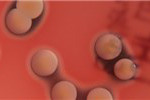Epigenomic data dump
 PIXABAY, PUBLICDOMAINPICTURESMembers of the Roadmap Epigenome Consortium this week (February 18) published their analysis of 111 human epigenomes in Nature. Their publication was accompanied by a slew of other epigenome analyses, including those related to cancer and Alzheimer’s disease.
PIXABAY, PUBLICDOMAINPICTURESMembers of the Roadmap Epigenome Consortium this week (February 18) published their analysis of 111 human epigenomes in Nature. Their publication was accompanied by a slew of other epigenome analyses, including those related to cancer and Alzheimer’s disease.
These achievements in epigenome mapping are “definitely a milestone,” said Kristian Helin of the University of Copenhagen who was not involved in the research. “It should mostly be credited for the enormous amount of work . . . that hopefully will serve as a very good guide for epigenome studies in the future.”
“At times, we need a control or reference, a baseline, and now we can just go here and download this data, and use that as a baseline for our experiments, and that’s important,” added Manel Esteller of the Bellvitge Biomedical Research Institute in Spain who was not involved in the study.
Neuronal appetite...
 WIKIMEDIA, ALLEN INSTITUTE FOR BRAIN SCIENCEDuring feeding, pro-opiomelanocortin (POMC) neurons typically signal satiety. But exposure to cannabinoids can lead to the opposite effect, according to a mouse study published in Nature this week (February 18).
WIKIMEDIA, ALLEN INSTITUTE FOR BRAIN SCIENCEDuring feeding, pro-opiomelanocortin (POMC) neurons typically signal satiety. But exposure to cannabinoids can lead to the opposite effect, according to a mouse study published in Nature this week (February 18).
“All evidence, based on manipulations of the functions of these neurons, was consistent with their role in suppressing appetite—until this [paper],” said neuroscientist Scott Sternson of the Howard Hughes Medical Institute’s Janelia Research Campus in Ashuburn, Virginia, who was not involved in the study.
Predicting superbugs
 WIKIMEDIA, HANSNResearchers are using computational algorithms and experimental evolution to predict antibiotic resistance in an effort to combat superbugs and improve drug design.
WIKIMEDIA, HANSNResearchers are using computational algorithms and experimental evolution to predict antibiotic resistance in an effort to combat superbugs and improve drug design.
Roy Kishony of the Technion Israel Institute of Technology and Harvard University is one systems biologist working to better understand the bacterial genome. “What my lab and others are trying to do is try to read the genome to see two things: what the genome can do today, and what it might evolve to do tomorrow,” he told The Scientist.
“The more we can predict [antibiotic resistance], the better we’ll get at having drugs out there that are less likely to evolve resistance,” said microbiologist Amy Anderson of the University of Connecticut.
Melanin and mutations
 CASES JOURNAL, S. REPERTINGER ET AL.Even hours after ultraviolet (UV) light exposure, mutation-causing cyclobutane pyrimidine dimers (CPDs) can form on DNA, posing a melanoma risk, according to a study published in Science this week (February 19). Experimenting on a mouse model and in human skin cells, scientists found that melanin and superoxide are required for the formation of these potentially harmful CPDs.
CASES JOURNAL, S. REPERTINGER ET AL.Even hours after ultraviolet (UV) light exposure, mutation-causing cyclobutane pyrimidine dimers (CPDs) can form on DNA, posing a melanoma risk, according to a study published in Science this week (February 19). Experimenting on a mouse model and in human skin cells, scientists found that melanin and superoxide are required for the formation of these potentially harmful CPDs.
“The study is really interesting and provocative,” said cancer biologist David Fisher of Boston’s Massachusetts General Hospital who was not involved in the work. “It underlines even more than what we knew previously: that melanin biochemistry is a two-edged sword—there are benefits and liabilities.”
Mini manuscripts
 FLICKR, THEREALDAVIDFRANCISScientists are now invited to submit to The Journal of Brief Ideas, a citable online index of research articles that are 200 words or fewer, which this month launched in beta.
FLICKR, THEREALDAVIDFRANCISScientists are now invited to submit to The Journal of Brief Ideas, a citable online index of research articles that are 200 words or fewer, which this month launched in beta.
“There is intellectual capital locked up in the heads of scientists rather than circulating in the scientific community,” said physicist David Harris, who founded the publication platform.
But whether the idea will catch on has yet to be seen. “If the journal is just a place where people dump their thoughts, it could get crowded pretty quickly,” said biologist Michael Eisen of the University of California, Berkeley, who cofounded the open-access publisher PLOS.
“The world of scholarly research is very conservative when it comes to the structure of its communications—the traditional article doesn't seem like it is going away any time soon,” added Matthew Cockerill, cofounder of open-access publisher BioMed Central.
Other news in life science:
Notable Young Neuroscientist Dies
Xu Liu, who used optogenetics to manipulate memories in mice, has passed away at age 37.
Nature Debuts Peer-Review Option
Authors submitting to Nature journals can soon request double-blind reviews.
Blocking HIV
A synthetic antibody prevents infection in four monkeys injected with heavy doses of the virus.
ROS Can Shorten or Lengthen Life
Reactive oxygen species have opposing effects on roundworm longevity depending on whether these molecules are in the mitochondria or the cytoplasm.
Two New Jurassic Mammals Found
Researchers working in China have unearthed the fossil remains of two diminutive mammals that speak volumes about faunal diversity during the Jurassic Period.
Interested in reading more?




